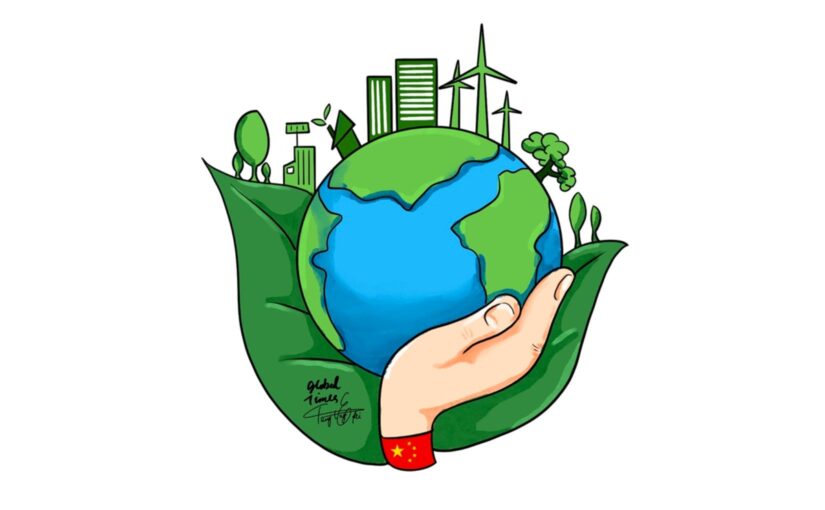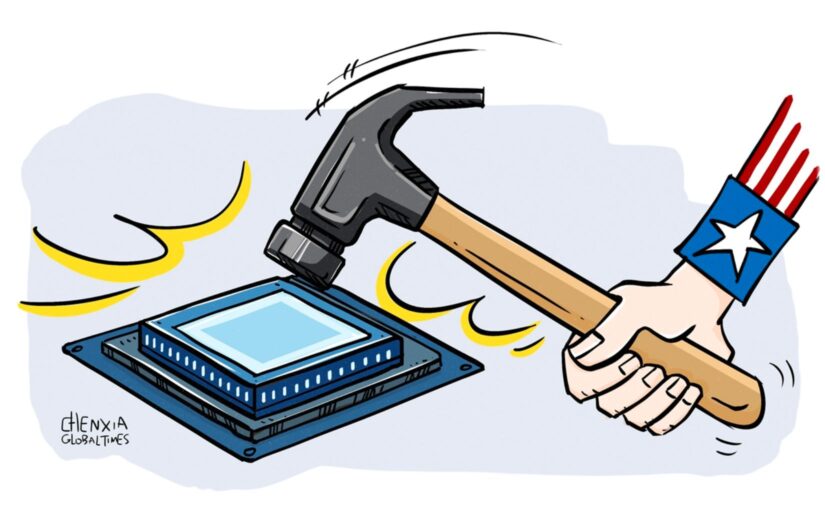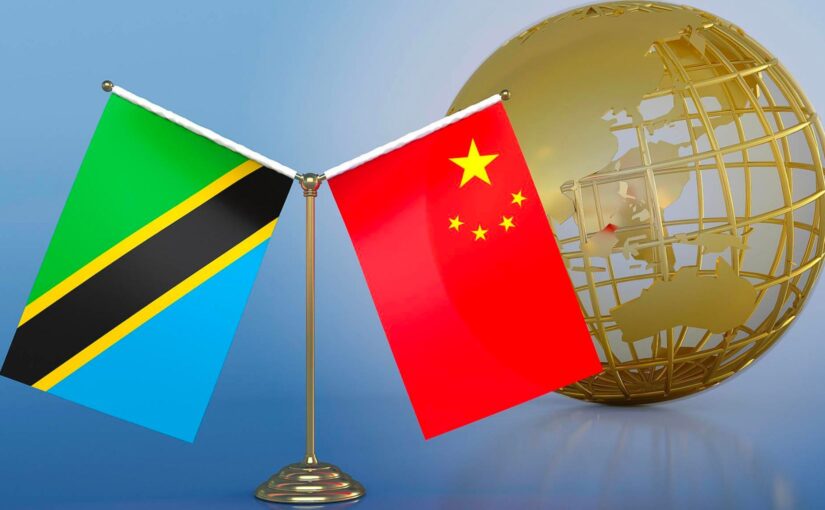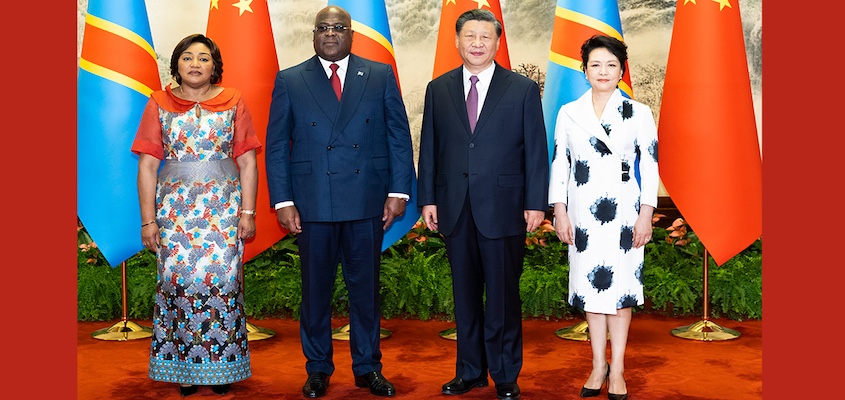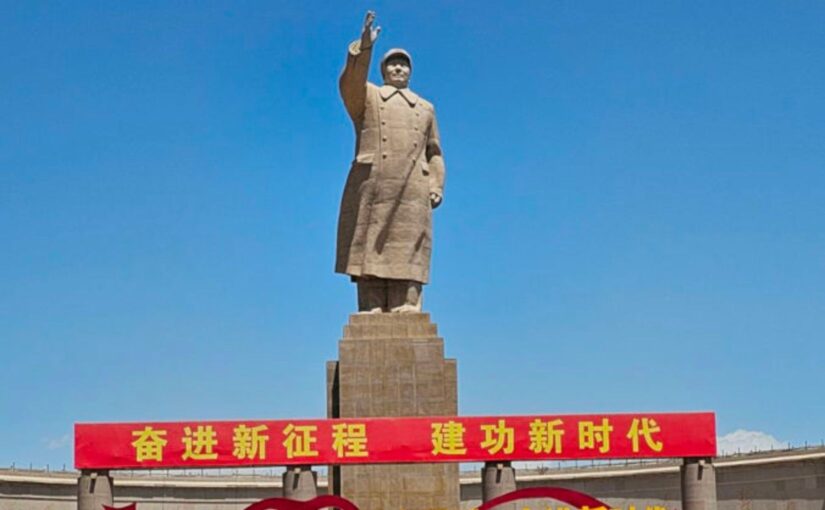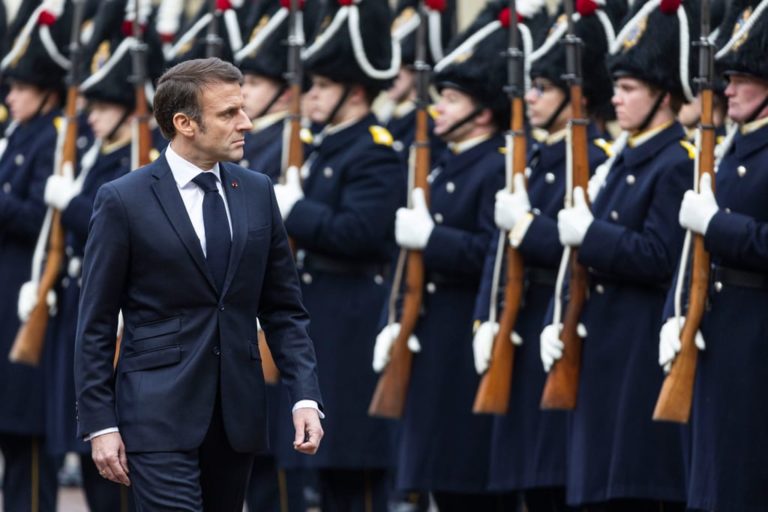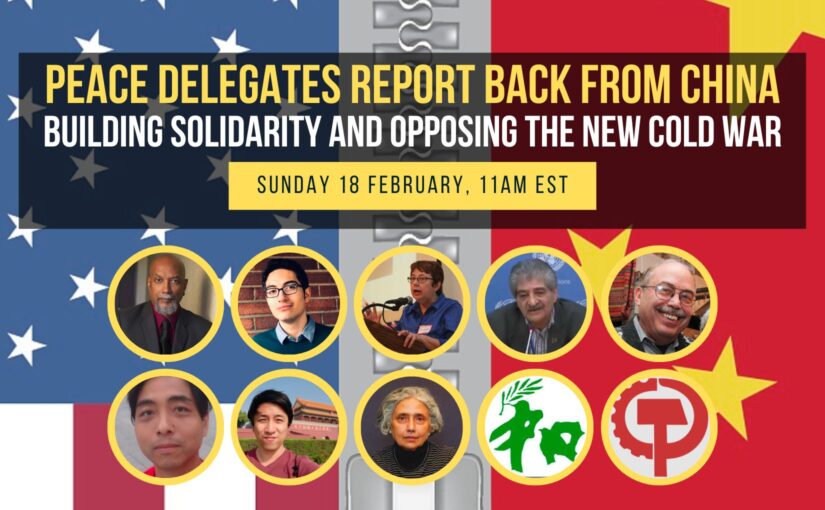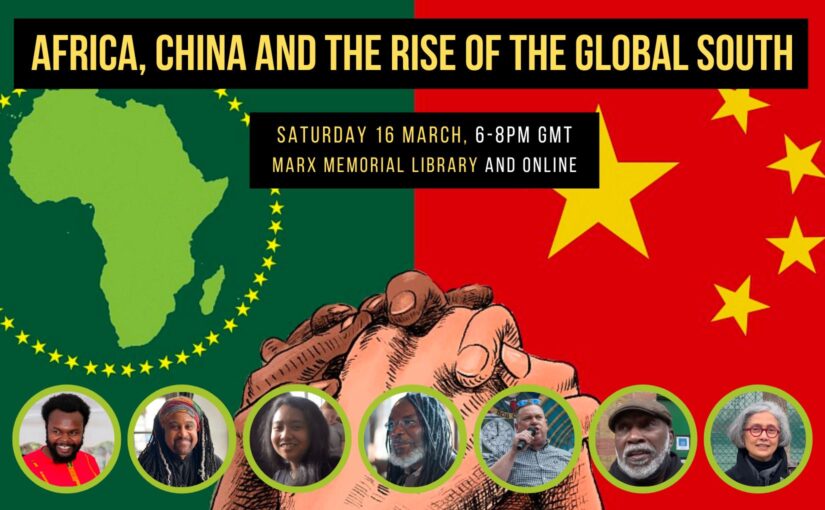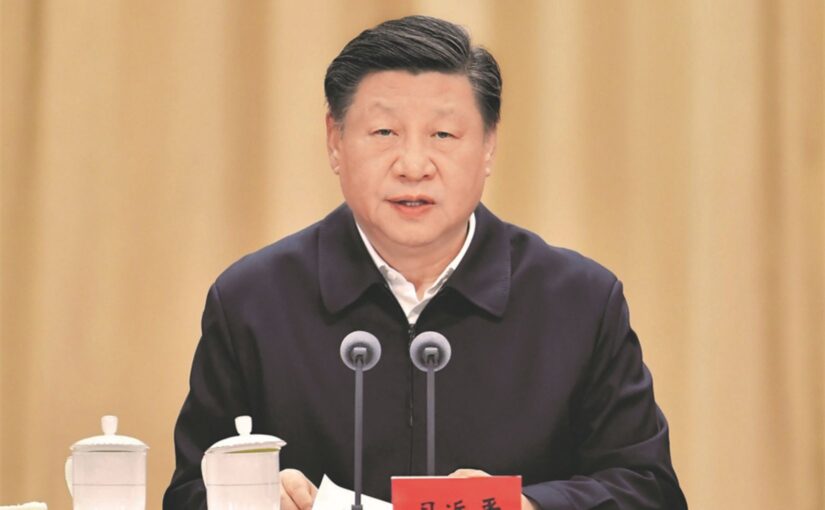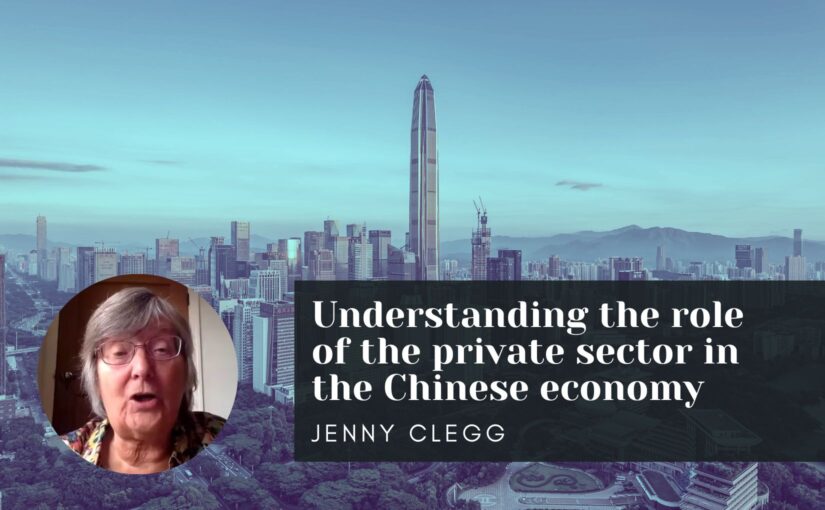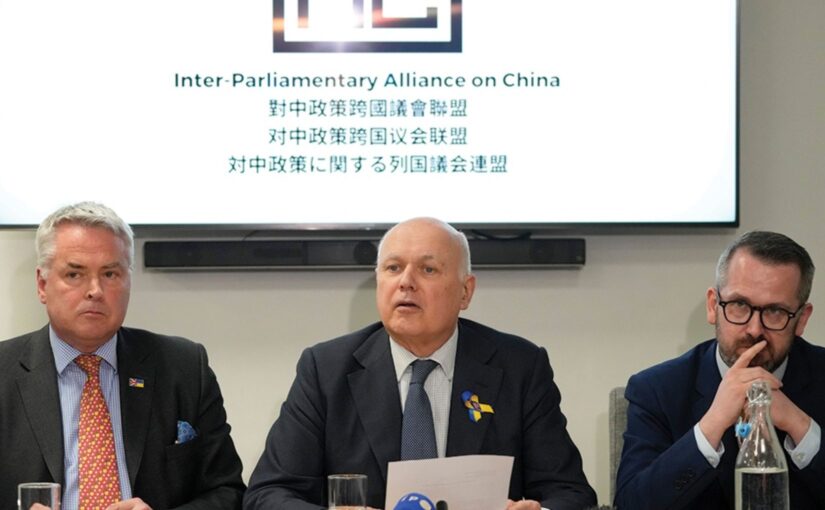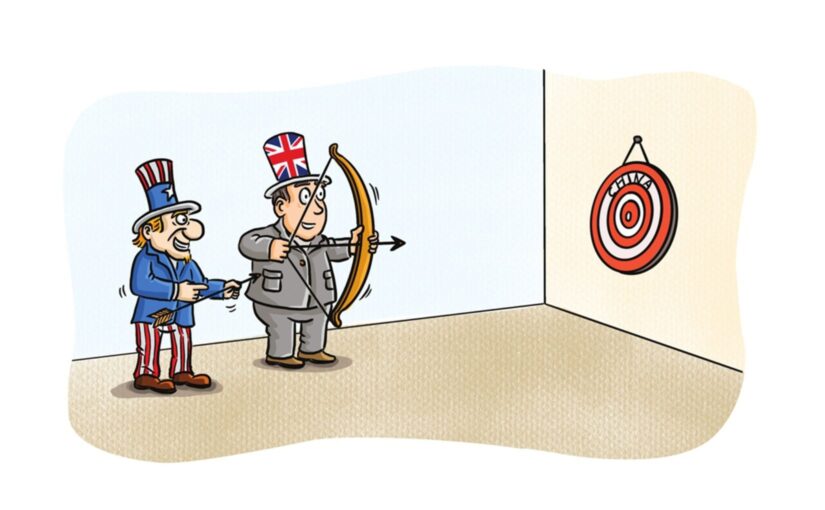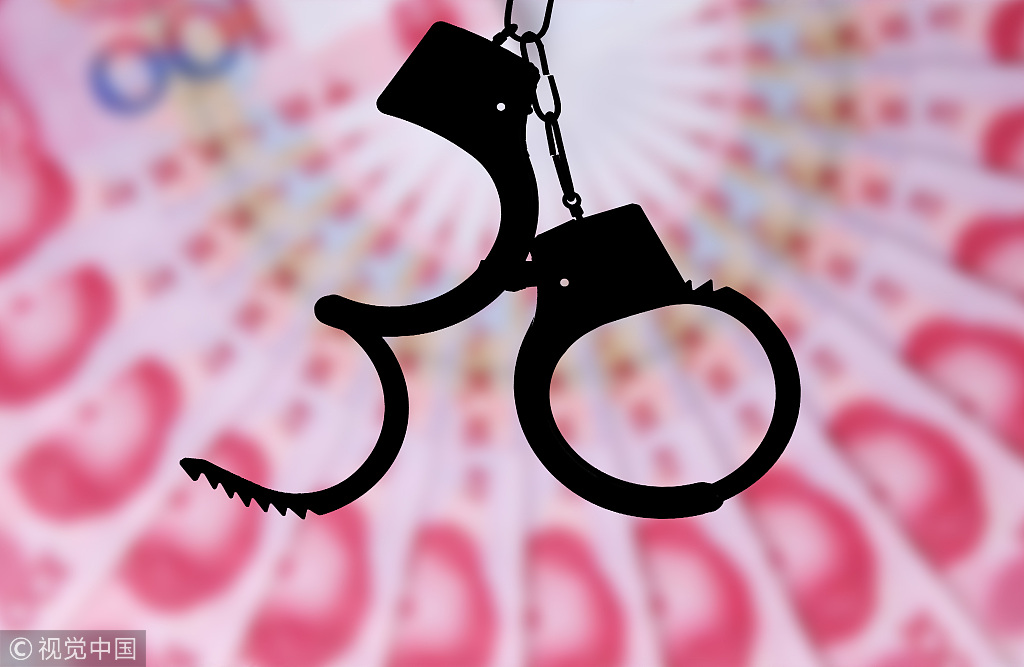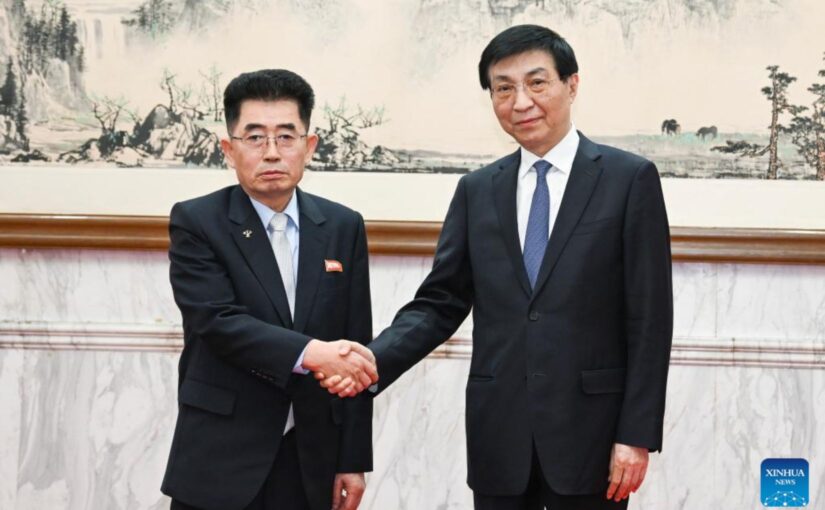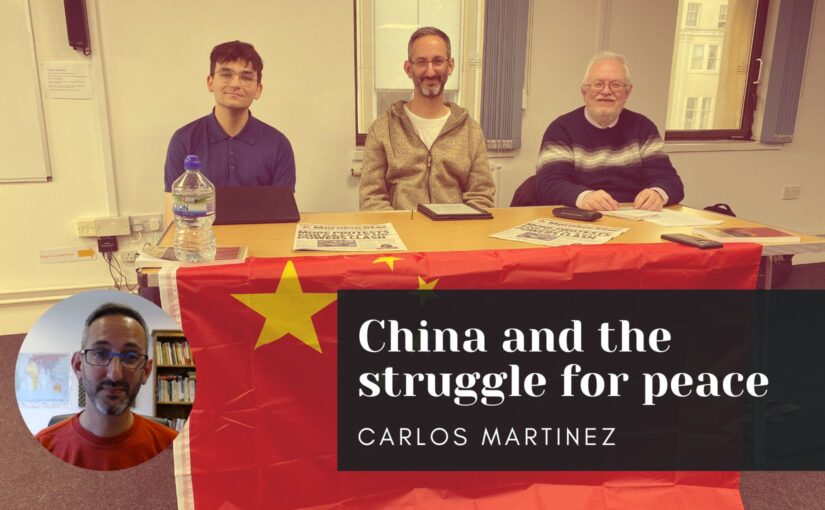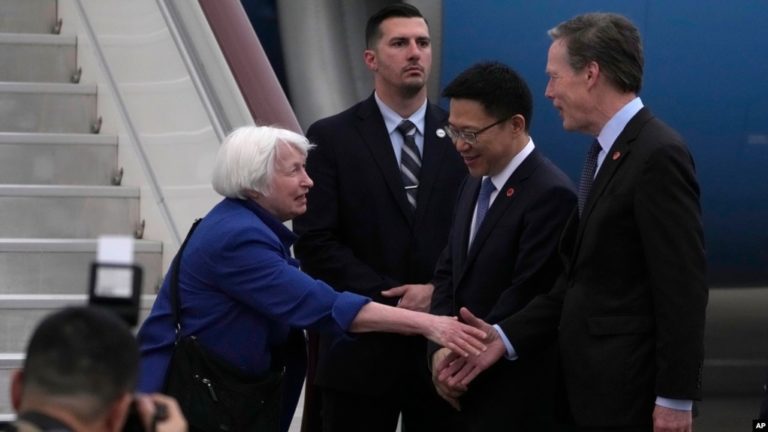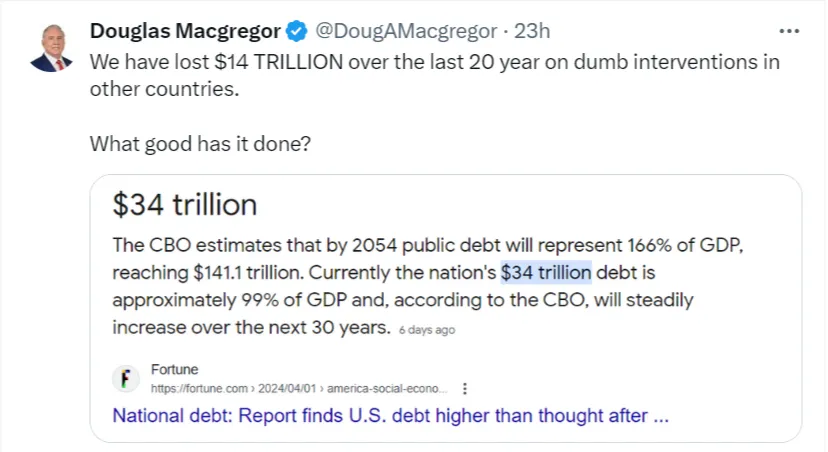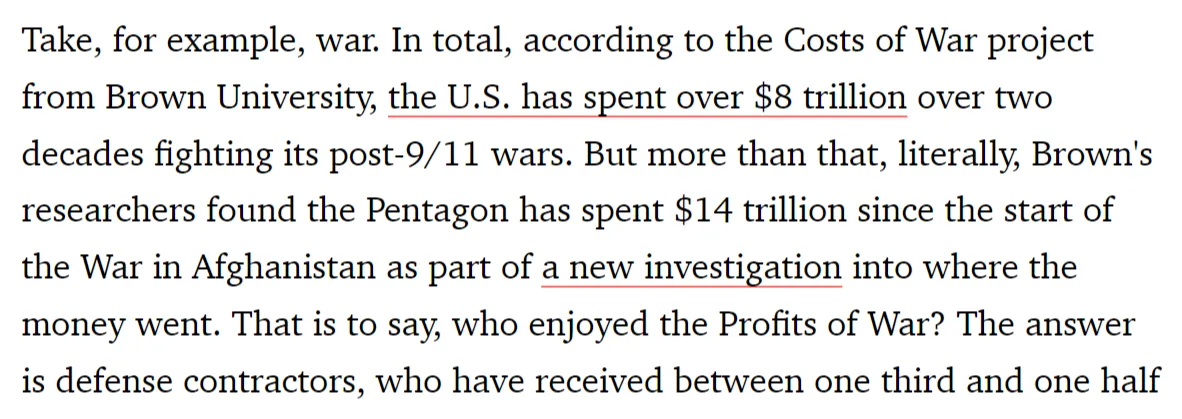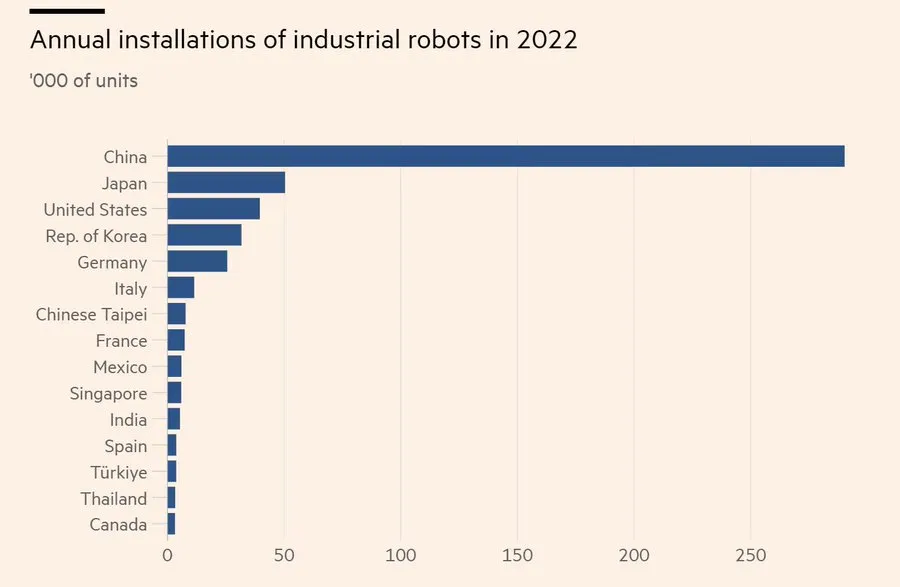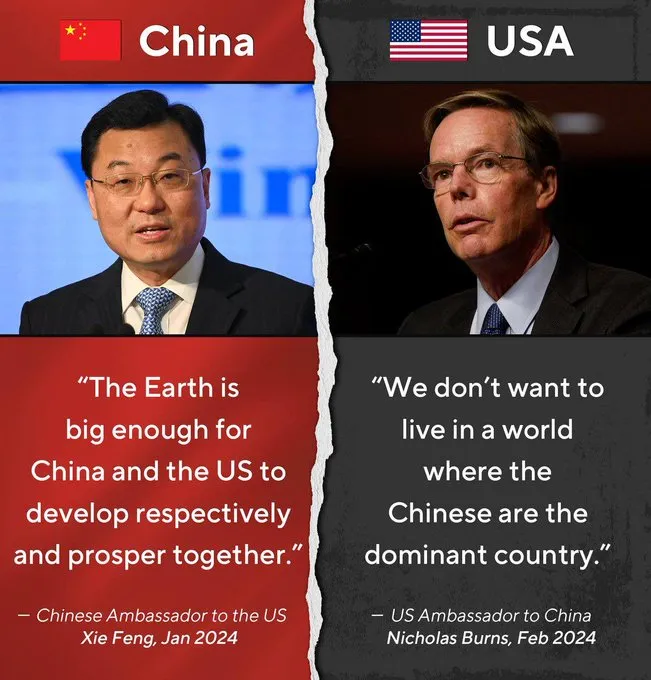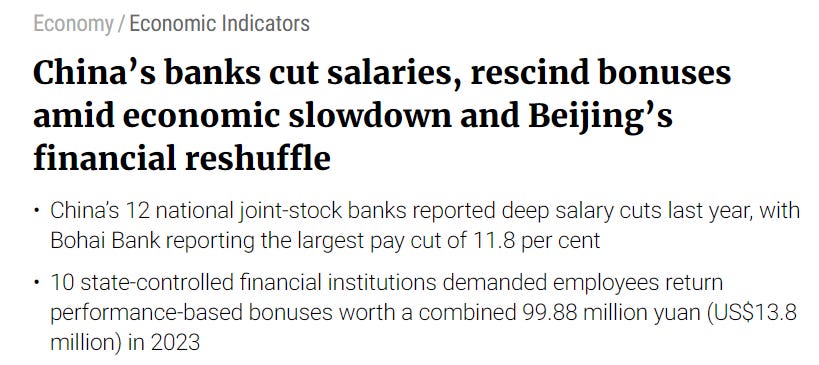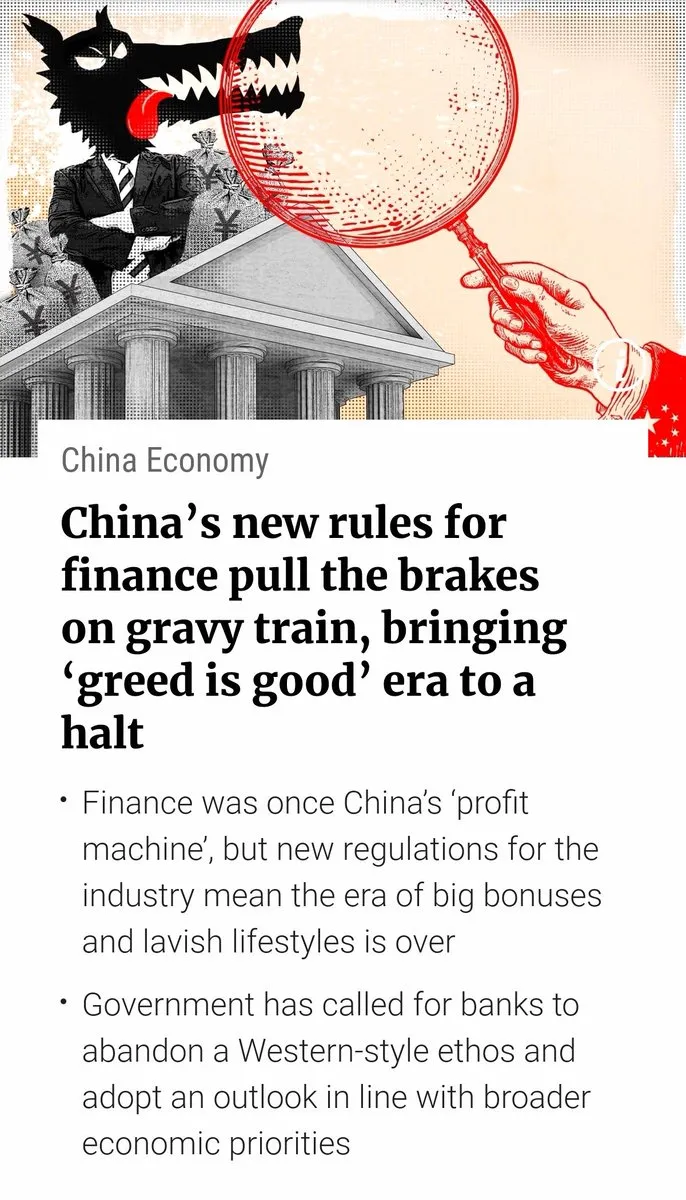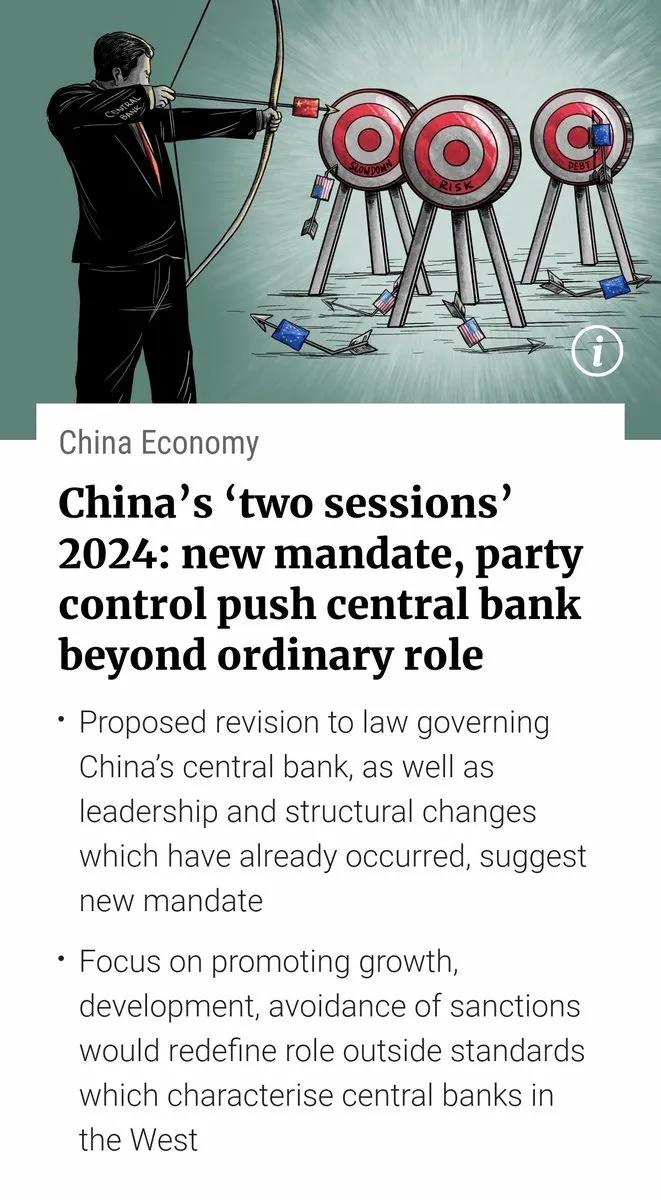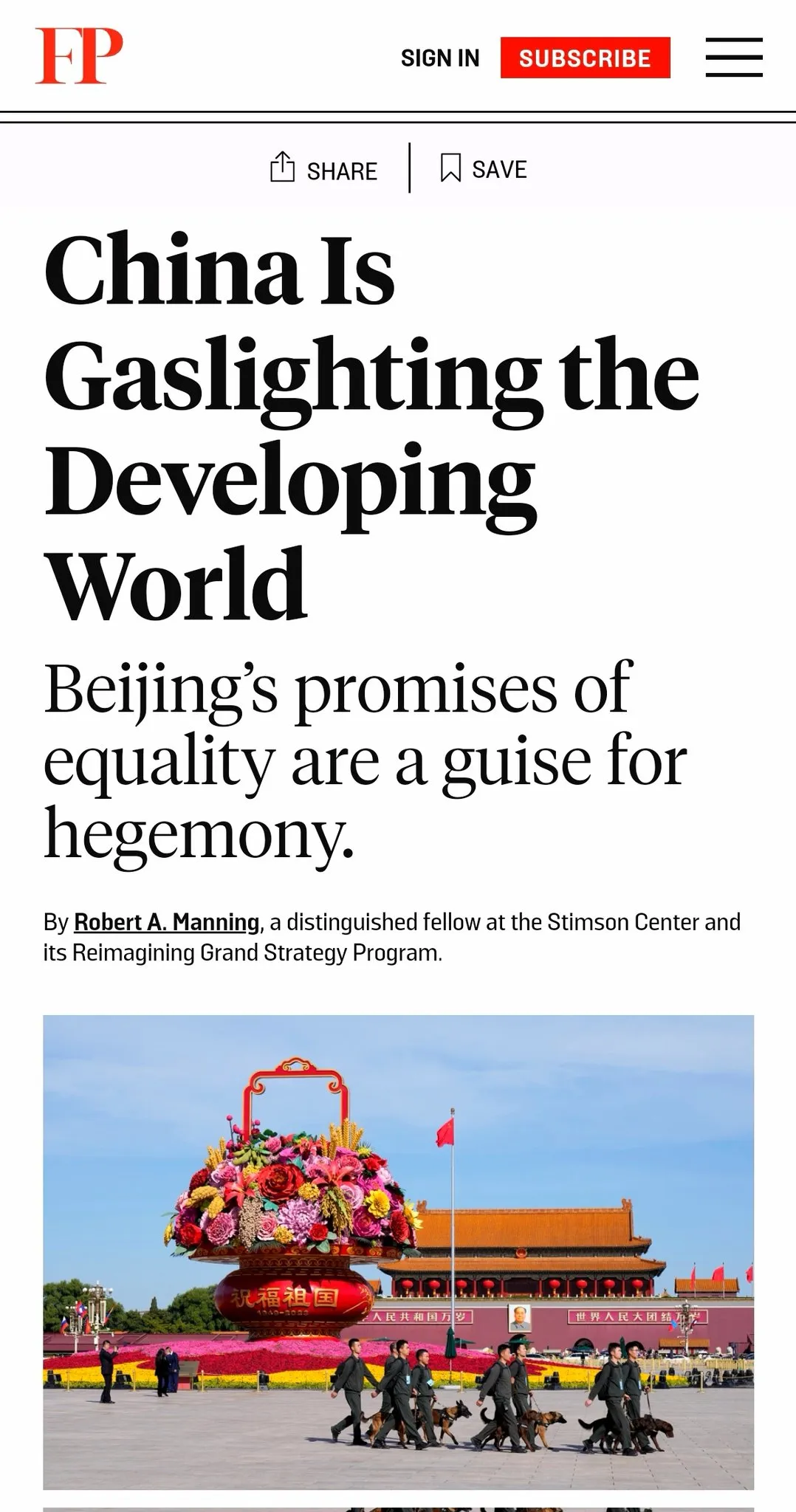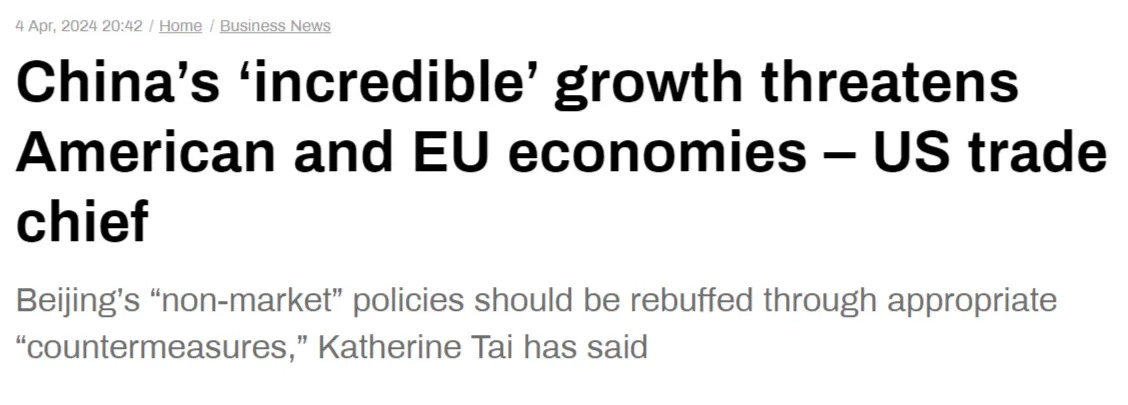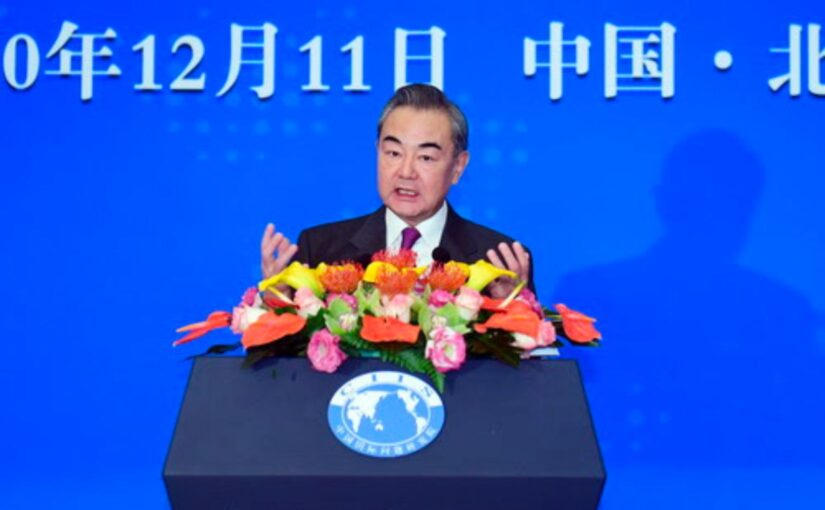
Self-confidence and self-reliance, openness and inclusiveness, fairness and justice, and win-win cooperation
Address by H.E. Wang YiChina’s top diplomat, Foreign Minister Wang Yi, who is also a Member of the Political Bureau of the Central Committee of the Communist Party of China (CPC) and Director of the Office of the Central Commission for Foreign Affairs, delivered an important and comprehensive speech at a Beijing Symposium on the International Situation and China’s Foreign Relations on January 9, 2024.
Saying that in the preceding year China had created a favourable environment for building a great modern socialist country and advancing the rejuvenation of the Chinese nation, and had made new contributions to maintaining world peace and promoting common development, Wang Yi went on to identify six highlights:
Our head-of-state diplomacy has been immensely successful, achieving new milestones in major-country diplomacy with Chinese characteristics.
In 2023, President Xi Jinping was personally involved in the planning and execution of major diplomatic actions. He chaired two home-ground events, attended three multilateral summits, made four important overseas visits, and held more than 100 meetings and phone calls.
Solid progress has been made in building a community with a shared future for mankind, lending new impetus to the building of a brighter future for humanity.
During General Secretary Xi Jinping’s historic state visit to Vietnam in December 2023, the most important political outcome reached between the two sides was to upgrade the bilateral relationship to a community with a shared future that carries strategic significance. This characterisation has marked not only a new level in the “comradely and brotherly” relations between the two socialist neighbours but also a full commitment of the Indochina Peninsula to jointly building a community with a shared future.
The inclusion of Turkmenistan, Kyrgyzstan and Tajikistan has brought its coverage to the whole of Central Asia. China is working with Cambodia and Laos on a new, five-year action plan, and has reached agreement with Malaysia, in addition to Thailand and Indonesia, adding to the good momentum toward a closer China-ASEAN community with a shared future. In his visit to South Africa, President Xi Jinping announced with President Cyril Ramaphosa the decision to build a high-quality China-South Africa community with a shared future, taking China-Africa relations to a new stage.
The Belt and Road Forum for International Cooperation was successfully held, taking BRI cooperation to a new stage of high-quality development.
Ten years on, Belt and Road cooperation has extended from the Eurasian continent to Africa and Latin America and expanded from physical connectivity to institutional connectivity and people-to-people bonds.
The BRICS mechanism achieved a historic expansion, adding new strength to unity and cooperation in the developing world.
BRICS countries have made dedicated efforts to promote global growth and improve global governance. Inspired by the vibrancy and appeal of the mechanism, dozens of developing countries have officially applied for its membership. The expansion marks a milestone in the development of the BRICS mechanism, and ushers in a new era of strength through unity for the Global South. The expanded “greater BRICS” will surely play a stronger role in shaping a more just and equitable global governance system and increasing the representation and voice of the Global South in international affairs.
A successful China-Central Asia Summit was held, creating a new platform for good-neighbourliness and friendly cooperation in the region.
China and the five Central Asian countries, connected by mountains and rivers, have always been friendly neighbours. China hopes to see, more than anyone, a stable, prosperous, harmonious, and interconnected Central Asia. At a key moment in the evolving international landscape, President Xi Jinping and the heads of state of the five Central Asian countries gathered in the historical city of Xi’an, the starting point of the ancient Silk Road, for the inaugural China-Central Asia Summit.
President Xi Jinping comprehensively elaborated on China’s foreign policy toward Central Asia, and decided, together with the heads of state of the five Central Asian countries, to build a closer China-Central Asia community with a shared future, formally establish the mechanism of meetings between the heads of state of China and Central Asian countries and set up a permanent secretariat for the China-Central Asia mechanism.
We facilitated the historic reconciliation between Saudi Arabia and Iran, setting a new example of political settlement of hotspot issues.
President Xi Jinping had in-depth communication with the leaders of Saudi Arabia and Iran, persuading the two countries to let go of past grievances and meet each other halfway. We are glad to see that Syria has rejoined the family of the League of Arab States; Qatar, Syria, Iran, and Türkiye have restored diplomatic ties or normalised their relations respectively with Bahrain and the United Arab Emirates, with Tunisia and Saudi Arabia, with Sudan and with Egypt; and the people of regional countries are taking the future of the Middle East back into their own hands.
Wang Yi went on to say that over the past year, when faced with major issues concerning the future of humanity and the direction of world development, China has all along stood firmly on the right side of history and on the side of human progress in its diplomacy, and made decisions that can stand the test of practice and time, and gave a further six examples in this regard:
We firmly choose cooperation over confrontation.
China continued to deepen its comprehensive strategic partnership of coordination with Russia, with a view to boosting our respective development and revitalisation and promoting world multipolarity and greater democracy in international relations. Last year, President Xi Jinping chose Russia for his first overseas trip and held two meetings with President Vladimir Putin, showing a high level of mutual trust and providing strategic guidance for practicing true multilateralism, enhancing practical cooperation across the board, and upholding global strategic stability.
China-EU comprehensive strategic partnership entered its 20th year. The China-Europe relationship is not targeted at any third party, nor is it subjugated to or controlled by any third party. When China and Europe join hands, attempts to create bloc confrontation will not succeed and a new Cold War will not take place.
How China and the United States interact with each other affects the future of humanity and our planet. At the beginning of last year, when this relationship went through serious difficulties, China stated its solemn position, urging the US to change its wrong perception of China and reinstate a reasonable and pragmatic China policy. After painstaking efforts, the two sides managed to rebuild communication and dialogue and stabilised bilateral relations from further deterioration.
We firmly choose solidarity over division.
What concerns the international community the most today is: Will humanity head toward division? Will there be a new Cold War? We stand firmly against small circles that seek geopolitical purposes and small blocs that undermine stability. China is committed to building a new type of international relations and to consolidating and expanding the global network of partnerships.
China stood firmly in solidarity with the Global South, going through thick and thin and heading toward a shared future with fellow developing countries. President Xi Jinping visited Africa, his first such visit in five years, and co-chaired the China-Africa Leaders’ Dialogue, drawing the blueprint for future China-Africa cooperation. We continued to strengthen strategic mutual trust with Arab countries, accelerated the implementation of the outcomes of the first China-Arab States Summit and the first China-Gulf Cooperation Council Summit. We received over 10 leaders from Latin American countries and attended the Group of 77 plus China Summit in Havana, speeding up the upgrading of China’s relations with Latin America.
Around the world, we see reinvigoration of countries in Asia, Africa and Latin America, the collective rise of developing countries and a new awakening of the Global South. This has made us more confident about the future of the world and more hopeful of human solidarity. Modernisation should not be confined to a few. Rather, it should serve all countries and all people.
We firmly choose openness over isolation.
Over the past year, we have been working actively to provide platforms for opening up. We brought back face-to-face events, such as the China International Import Expo, the China International Consumer Products Expo, the China International Fair for Trade in Services, and the Canton Fair, to share our development opportunities with countries from around the world. We kept increasing investment in BRI partners and expanding cooperation in areas such as infrastructure, industries, economy and trade, and scientific and technological innovation with other countries, helping them generate more job opportunities and incomes.
We firmly choose peace over war.
Following the outbreak of the Ukraine crisis, President Xi Jinping put forward four points about what must be done, four things the international community must do together and three observations of the crisis. We released China’s Position on the Political Settlement of the Ukraine Crisis and engaged extensively with relevant parties through the special envoy of the Chinese government. We have remained unequivocal in advocating respect for the sovereignty of all countries and rejecting the Cold War mentality and made active efforts for resuming peace talks and restoring peace.
The Palestinian-Israeli conflict bears on the overall situation in the Middle East. President Xi Jinping presented China’s position on many occasions. He noted that the imperatives are to end hostilities, prevent the conflict from spilling over, effectively protect civilians and increase humanitarian assistance. He emphasised that the only viable way lies in implementing the two-state solution and pushing for a comprehensive, just and sustainable solution to the question of Palestine at an early date. Working in unity with Arab and Islamic countries, China held a high-level meeting on the Palestinian-Israeli issue at the UN Security Council, sent its special envoy to work on the ground and promote peace talks, and increased humanitarian assistance, extending a helping hand to the people in Gaza at a perilous time.
We support Afghanistan in building an inclusive political framework, adopting moderate policies, and pursuing peace and reconstruction. Through our mediation efforts, conflict is giving way to reconciliation in northern Myanmar, showcasing our firm commitment to maintaining peace and stability in border areas. We have consistently promoted the political settlement of the Korean Peninsula issue and the Iranian nuclear issue and have become a much-needed constructive force for safeguarding world peace and tranquillity.
We firmly choose multilateralism over unilateralism.
We are committed to true multilateralism. We firmly uphold the UN-centred international system and the basic norms of international relations underpinned by the purposes and principles of the UN Charter.
Over the past year, we have delivered on the Global Development Initiative (GDI). Over 70 countries have joined the Group of Friends of the GDI. More than 200 cooperation projects have been implemented. The US$4 billion Global Development and South-South Cooperation Fund has been put into use.
Over the past year, the Global Security Initiative (GSI) has gained greater influence. It has garnered support from over 100 countries and international and regional organisations and is written into a host of bilateral and multilateral documents.
We firmly choose justice over power politics.
The world today is far from tranquil, and hegemonic and bullying acts are inflicting profound harm. China, as a responsible major country, has always upheld justice and stood up for fairness. We have resolutely opposed hegemonism and power politics, resolutely pushed back against a handful of countries’ attempt to dominate international affairs, demanded increased representation and say of developing countries in the global governance system, supported addressing the historical injustices done to African countries as a priority, and urged the lifting of all illegally imposed unilateral sanctions. With these efforts, we have firmly upheld the common and legitimate rights and interests of developing countries and made the international order more just and equitable.
Defending justice in defiance of hegemonic power is certainly also about safeguarding China’s sovereignty, national dignity, and territorial integrity. In the face of external interference and provocation, we fought back resolutely and forcefully. In response to various acts of unjustified suppression, we took legitimate and reasonable countermeasures. The international community’s commitment to the one-China principle has been further cemented and the 1.4 billion Chinese people’s resolution to advance national reunification remains rock-solid. No individual or force should ever attempt to challenge the Chinese people’s iron-clad will or undermine China’s core interests.
China’s diplomacy is the people’s diplomacy. Serving the people is the original aspiration and mission that we bear in mind all the time. We evacuated thousands of compatriots from war-torn regions around the globe. The long journey back home once again shows that, no matter where they are, our compatriots know that the motherland always has their back and the Chinese diplomatic missions are their home in distant lands.
Noting that this year sees the 75th anniversary of the founding of the People’s Republic of China and that it is also a key year in realising the goals and tasks of the 14th Five-Year Plan, Wang Yi made four pledges for 2024:
We will always commit to self-confidence and self-reliance and shoulder our due responsibility as a responsible major country.
We will give full play to the strategic guiding role of head-of-state diplomacy, ensure the success of the international events China is going to host, such as the Forum on China-Africa Cooperation meeting, the Boao Forum for Asia conference, the China International Import Expo and the Forum on Global Action for Shared Development, and demonstrate the distinctive style of major-country diplomacy with Chinese characteristics. We will stand up on major issues bearing on the solidarity, cooperation, and legitimate rights of developing countries, and take a clear stand on crucial issues concerning the future of humanity and the direction of world development. Upholding justice, we will stay firmly on the right track of history.
We will always commit to openness and inclusiveness and consolidate and expand our global network of partnerships.
We will take the 70th anniversary of the initiation of the Five Principles of Peaceful Coexistence as an opportunity to promote a new type of international relations. We will actively implement the Global Civilisation Initiative (GCI) and advocate the common values of humanity. We will promote exchanges and mutual learning among civilisations, increase understanding and friendship among people of all countries, and join forces for the progress of human civilisation.
We will always commit to fairness and justice and promote an equal and orderly multipolar world.
We will practice true multilateralism and advance democracy in international relations. All countries, regardless of their size, should be treated as equals. Each and every country should have its place in the global multipolar system and can play its due role. We will fully implement the GSI, uphold fairness and justice, actively promote talks for peace, and play a constructive part in resolving the Palestinian-Israeli conflict, the Ukraine crisis, and other global and regional hotspots. We will put forward more Chinese proposals, contribute more Chinese wisdom, and provide more public goods that serve the interest of world peace and development.
We will always commit to win-win cooperation, and actively advance a universally beneficial and inclusive economic globalisation.
We will advance the implementation of the GDI, scale up input in global development cooperation, and help fellow developing countries build capacity for self-generated development.
In concluding, Wang Yi said that: “The future of humanity is bright, yet the road leading to this bright future is tortuous.” (Here he invokes a well-known formulation of Comrade Mao Zedong, one that he put forward, for example, in his October 1945 report, ‘On the Chungking Negotiations’. And Mao concluded his April 25, 1956 speech, ‘On the Ten Major Relationships’, by stating: “But as we have often said, while the road ahead is tortuous, the future is bright. We must do our best to mobilise all positive factors, both inside and outside the Party, both at home and abroad, both direct and indirect, and make China a powerful socialist country.”)
“Under the leadership of the CPC Central Committee with Comrade Xi Jinping at its core, the diplomatic service will continue to pursue China’s development in the broader context of world development and advance the interests of the Chinese people while bearing in mind the interests of other people. Acting with vision and greater enterprise, we will work together with all countries to shoulder the responsibilities of our times, jointly rise to the challenges, and usher in an even better and brighter future for our world.”
We reprint the full text of Wang Yi’s speech below. It was originally published on the website of the Chinese Foreign Ministry.
At the Symposium on the International Situation and China’s Foreign Relations Beijing, January 9, 2024
Dear Experts and Friends,
I am delighted to meet you at the start of the new year to take stock of the international situation and discuss China’s foreign relations. In this volatile era, we are facing global transformation not seen in a century, and reflecting on the way forward. I wish to thank you for your care and support over the past year and look forward to benefiting from your insights.
The year 2023 witnessed major and profound evolution in international relations as well as solid progress in Chinese modernization. It was also a year of progress and harvest for China’s diplomacy.
Under the strong leadership of the Party Central Committee with Comrade Xi Jinping at its core, we have upheld fundamental principles while breaking new ground and forged ahead in China’s external work. We have created a favorable environment for building a great modern socialist country and advancing the rejuvenation of the Chinese nation. We have made new contribution to maintaining world peace and promoting common development. The following six highlights are particularly worth reviewing.
The first highlight: Our head-of-state diplomacy has been immensely successful, achieving new milestones in major-country diplomacy with Chinese characteristics.
In 2023, President Xi Jinping was personally involved in the planning and execution of major diplomatic actions. He chaired two home-ground events, attended three multilateral summits, made four important overseas visits and held more than 100 meetings and phone calls. With the vision of the leader of a big party and a big country, he advanced friendly cooperation and discussed global issues with his counterparts. From the extensive talks at the Kremlin to the summit in Guangzhou’s Songyuan, from the “Chang’an reunion” with the leaders of Central Asian countries, to the state visit to the “comradely and brotherly” neighbor, from the BRICS moment in the “rainbow nation” to the Asia-Pacific blueprint at Sunnylands, and from the FISU World University Games in Chengdu to the Asian Games in Hangzhou, the President showcased the spectacular achievements of China in the new era, strengthened the exchanges with the rest of the world, and opened up new prospects in China’s foreign relations.
Head-of-state diplomacy involves not only high-level dialogues of strategic significance but also heart-to-heart communication with the people. Last July, at the nearby Villa No.5 of the Diaoyutai State Guesthouse where Dr. Henry Kissinger stayed during his first visit to China more than five decades ago, President Xi Jinping met cordially with and held a luncheon for this century-old man who had paid more than 100 visits to China. This special arrangement reflected China’s fine tradition of never forgetting old friends. Over the past year, President Xi Jinping also delivered an important speech to the American people, had cordial exchanges with young Vietnamese, and wrote heart-warming and encouraging letters to many foreign friends including Greek scholars, a Bangladeshi kid, South African university students, and a Cuban scientist. These communications have sown the seeds of friendship and written a new chapter of interactions and mutual understanding.
The second highlight: Solid progress has been made in building a community with a shared future for mankind, lending new impetus to the building of a brighter future for humanity.
During General Secretary Xi Jinping’s historic state visit to Viet Nam last month, the most important political outcome reached between the two sides was to upgrade the bilateral relationship to a community with a shared future that carries strategic significance. This characterization has marked not only a new level in the “comradely and brotherly” relations between the two socialist neighbors but also a full commitment of the Indochina Peninsula to jointly building a community with a shared future.
Over the past year, big strides have been made in building a community with a shared future. The inclusion of Turkmenistan, Kyrgyzstan and Tajikistan has brought its coverage to the whole of Central Asia. China is working with Cambodia and Laos on a new, five-year action plan, and has reached agreement with Malaysia, in addition to Thailand and Indonesia, adding to the good momentum toward a closer China-ASEAN community with a shared future. In his visit to South Africa, President Xi Jinping announced with President Matamela Cyril Ramaphosa the decision to build a high-quality China-South Africa community with a shared future, taking China-Africa relations to a new stage of jointly building a high-quality community with a shared future. In Arab, Latin America and the Caribbean, and Pacific Island countries, regional-level efforts of building communities with a shared future are also making refreshing developments.
Last year marked the 10th anniversary of the vision of a community with a shared future for mankind put forth by President Xi Jinping. This is a decade of hard work and progress: Building a community with a shared future for mankind has developed from a conceptual proposition to a scientific system, from a Chinese initiative to an international consensus, and from a promising vision to substantive actions. It has been included in resolutions of the U.N. General Assembly for seven consecutive years. Extending to various regions and covering various areas, it has served as a glorious banner leading the progress of the times.
The third highlight: The Belt and Road Forum for International Cooperation was successfully held, taking Belt and Road cooperation to a new stage of high-quality development.
The year 2023 marked the 10th anniversary of the Belt and Road Initiative (BRI) put forth by President Xi Jinping. Ten years on, Belt and Road cooperation has extended from the Eurasian continent to Africa and Latin America, and expanded from physical connectivity to institutional connectivity and people-to-people bonds. It has created the largest platform for international cooperation with the broadest coverage in the world. For participating countries pursuing development together, BRI sets them on a road to cooperation, a road to opportunity and a road to prosperity.
Last October, in the golden autumn season, the Third Belt and Road Forum for International Cooperation (BRF) was held in Beijing. It was the most important diplomatic event hosted by China in 2023. In his keynote speech at the Forum, President Xi Jinping gave a summary of the experience drawn from BRI’s success over the past decade, reaffirmed China’s commitment with the announcement of eight major steps, declared a new stage of high-quality development for Belt and Road cooperation, and called on all countries to jointly pursue global modernization. Over 10,000 delegates representing 151 countries and 41 international organizations came to the BRF with the hope for friendship, cooperation and development, and returned with 458 important outcomes and US$97.2 billion worth of cooperation documents. As the saying goes, “The fire burns high when everyone adds wood to it.” Belt and Road cooperation will surely provide enduring impetus for world economic growth and common development across the globe.
The fourth highlight: The BRICS mechanism achieved a historic expansion, adding new strength to unity and cooperation in the developing world.
In the spirit of openness, inclusiveness and win-win cooperation, BRICS countries have made dedicated efforts to promote global growth and improve global governance. Inspired by the vibrancy and appeal of the mechanism, dozens of developing countries have officially applied for its membership.
During China’s chairmanship in 2022, President Xi Jinping called on fellow BRICS countries to pursue development with open doors and boost cooperation with open arms, and appealed for admitting new members to pool greater strengths. With the unanimous consent of all members, the BRICS expansion process was launched in the China Summit year. After a year of preparation and consultation, leaders of the five BRICS countries made a political decision on expansion at the Johannesburg Summit in 2023, and officially welcomed new members to the BRICS family.
The expansion marks a milestone in the development of the BRICS mechanism, and ushers in a new era of strength through unity for the Global South. The expanded “greater BRICS” will surely play a stronger role in shaping a more just and equitable global governance system, and increasing the representation and voice of the Global South in international affairs.
The fifth highlight: A successful China-Central Asia Summit was held, creating a new platform for good-neighbourliness and friendly cooperation in the region.
China and the five Central Asian countries, connected by mountains and rivers, have always been friendly neighbors. China hopes to see, more than anyone, a stable, prosperous, harmonious and interconnected Central Asia. At a key moment in the evolving international landscape, President Xi Jinping and the heads of state of the five Central Asian countries gathered in the historical city of Xi’an, the starting point of the ancient Silk Road, for the inaugural China-Central Asia Summit. This was an event that carries great historical significance and practical relevance.
President Xi Jinping comprehensively elaborated on China’s foreign policy toward Central Asia, and decided, together with the heads of state of the five Central Asian countries, to build a closer China-Central Asia community with a shared future, formally establish the mechanism of meetings between the heads of state of China and Central Asian countries, and set up a permanent secretariat for the China-Central Asia mechanism. During the summit, a number of multilateral and bilateral documents were signed, blueprints were drawn up for cooperation in various fields, and consensus was reached on key cooperation initiatives, including building a China-Central Asia energy development partnership and supporting the development of the trans-Caspian international transport corridor.
This historic summit completed the platform building and overall planning of China-Central Asia cooperation, and opened up a new channel for the cooperation to move to higher levels. It will be a new monument in the history of China-Central Asia relations. Cooperation between the two sides, which is based on equality, respect, openness, inclusiveness and mutual support, contributes positive energy and stability to the region and the world at large.
The sixth highlight: We facilitated the historic reconciliation between Saudi Arabia and Iran, setting a new example of political settlement of hotspot issues.
President Xi Jinping had in-depth communication with the leaders of Saudi Arabia and Iran, persuading the two countries to let go of past grievances and meet each other half way. With strong support from China, the trilateral Beijing Agreement was reached, and Saudi Arabia and Iran announced the restoration of their diplomatic ties, setting off a “wave of reconciliation” across the Middle East. We are glad to see that Syria has rejoined the family of the League of Arab States; Qatar, Syria, Iran and Türkiye have restored diplomatic ties or normalized their relations respectively with Bahrain and the United Arab Emirates, with Tunisia and Saudi Arabia, with Sudan and with Egypt; and the people of regional countries are taking the future of the Middle East back into their own hands.
The Saudi Arabia-Iran reconciliation was a major victory for dialogue and peace, and a useful practice of the Chinese way of settling hotspot issues. China has always been an active, goodwill and reliable mediator. We do not believe in force being omnipotent, nor do we seek selfish geopolitical gains or impose our will on others. We have always supported the people of the Middle East in independently exploring their development paths, and supported the countries there in resolving differences through dialogue and consultation. I want to emphasize that China will continue to be a promoter of security and stability, a cooperation partner for development and prosperity, and a supporter for strength through unity in the Middle East, and will make greater contribution to reconciliation, peace and harmony in the region.
These six highlights encapsulate the unforgettable moments of China’s diplomacy in the past year and constitute the new chapters of China pursuing win-win cooperation with the rest of the world. They demonstrate distinct Chinese characteristics, style, and ethos, and speak to China’s enhanced international influence, stronger capacity to steer new endeavors, and greater moral appeal in the new era.
Dear Friends,
Over the past year, when faced with major issues concerning the future of humanity and the direction of world development, China has all along stood firmly on the right side of history and on the side of human progress in its diplomacy, and made decisions that can stand the test of practice and time.
First, we firmly choose cooperation over confrontation. Relations among major countries bear on the stability of the world. The Chinese side believes that major countries must have commensurate vision and shoulder due responsibilities. It is to this end that we are always ready to do more, and to strive for more positive results, to unequivocally oppose major-power competition and confrontation, and to unswervingly promote sound interactions with other major countries.
China continued to deepen its comprehensive strategic partnership of coordination with Russia, with a view to boosting our respective development and revitalization, and promoting world multipolarity and greater democracy in international relations. Last year, President Xi Jinping chose Russia for his first overseas trip and held two meetings with President Vladimir Putin, showing a high level of mutual trust and providing strategic guidance for practicing true multilateralism, enhancing practical cooperation across the board and upholding global strategic stability.
China-EU comprehensive strategic partnership entered its 20th year. Last year, President Xi Jinping held in-depth exchanges on multiple occasions with leaders of European countries, such as France and Germany, and EU institutions. Fruitful results were achieved in high-level dialogues in strategic, economic and trade, green and digital areas. China-Europe relationship is not targeted at any third party, nor is it subjugated to or controlled by any third party. When China and Europe join hands, attempts to create bloc confrontation will not succeed and a new Cold War will not take place. China-Australia relations returned to the right track, enabling a fresh start of the comprehensive strategic partnership and a virtuous cycle of sound and stable development. Chinese and Japanese leaders reaffirmed their commitment to comprehensively promoting a strategic relationship of mutual benefit, and agreed to properly handle existing problems to build a constructive and stable China-Japan relationship fit for the new era.
How China and the United States interact with each other affects the future of humanity and our planet. At the beginning of last year when this relationship went through serious difficulties, China stated its solemn position, urging the U.S. to change its wrong perception of China and reinstate a reasonable and pragmatic China policy. After painstaking efforts, the two sides managed to rebuild communication and dialogue and stabilized bilateral relations from further deterioration. Last November, President Xi Jinping accepted the invitation and held a historic meeting with President Joe Biden in San Francisco, during which they had a candid and in-depth exchange of views on issues of strategic and overarching importance and critical to the direction of China-U.S. relations. President Xi Jinping incisively pointed out that for China and the United States, turning one’s back on another is not an option; it is unrealistic for one side to remodel the other; and conflict and confrontation has unbearable consequences for both sides. The right way forward is to follow the principles of mutual respect, peaceful co-existence and win-win cooperation. President Biden reaffirmed the five commitments he made in Bali, stated that the United States is glad to see prosperity in China, and that the U.S. does not seek to contain or suppress China’s development or to decouple with China, and does not support “Taiwan independence”. The two sides reached more than 20 deliverables, restored and established a series of dialogue and communication mechanisms, and formed the future-oriented San Francisco vision.
Second, we firmly choose solidarity over division. What concerns the international community the most today is: Will humanity head toward division? Will there be a new Cold War? President Xi Jinping has given China’s answer: “Solidarity brings strength, and confidence is more precious than gold.” We stand firmly against small circles that seek geopolitical purposes and small blocs that undermine stability. China is committed to building a new type of international relations and to consolidating and expanding the global network of partnerships.
On the occasion of the 10th anniversary of the principle of amity, sincerity, mutual benefit and inclusiveness, President Xi Jinping further elaborated on the Asian values featuring peace, cooperation, inclusiveness and integration, and set forth a new vision of building a peaceful, safe and secure, prosperous, beautiful, amicable and harmonious Asian home. Landmark achievements including the commissioning of the Jakarta-Bandung high-speed railway complemented China-Indonesia relations. China and Singapore elevated their relationship to an all-around high-quality future-oriented partnership. The Lancang-Mekong Cooperation made solid and rapid progress. And China-ASEAN comprehensive strategic partnership continued to be close and pioneering. We released the Outlook on China’s Foreign Policy on Its Neighborhood in the New Era, the first of its kind, showing China’s commitment and resolve in working together with neighboring countries to safeguard regional tranquility amid fluid international dynamics and promote development despite challenges and difficulties.
China stood firmly in solidarity with the Global South, going through thick and thin and heading toward a shared future with fellow developing countries. President Xi Jinping visited Africa, first in five years, and co-chaired the China-Africa Leaders’ Dialogue, drawing the blueprint for future China-Africa cooperation. We continued to strengthen strategic mutual trust with Arab countries, accelerated the implementation of the outcomes of the first China-Arab States Summit and the first China-Gulf Cooperation Council Summit. We received over 10 leaders from Latin American countries and attended the Group of 77 plus China Summit in Havana, speeding up the upgrading of China’s relations with Latin America.
Around the world, we see reinvigoration of countries in Asia, Africa and Latin America, the collective rise of developing countries and a new awakening of the Global South. This has made us more confident about the future of the world and more hopeful of human solidarity. Modernization should not be confined to a few. Rather, it should serve all countries and all people. We are convinced that as long as countries move beyond their differences of views, embrace solidarity and work with one another, difficulties of all sorts can be resolved and the vision of global modernization can become a reality.
Third, we firmly choose openness over isolation. Global economic recovery remains sluggish, yet protectionist tendency is on the rise, fanned by rampant politicizing and stretching of national security concept and growing rhetorics on “building high fences around a small yard”, “decoupling and cutting off supply chains” and “de-risking”. These are against the trend of the times. They hold back a country’s own development and seriously weaken the drivers of global growth. China believes globalization is an irreversible trend. The world economy is like a big ocean that cannot be cut into isolated lakes. Only by increasing openness will we be able to tackle challenges; only by strengthening cooperation will we be able to achieve sustained development.
Over the past year, we have been working actively to provide platforms for opening up. We brought back face-to-face events, such as the China International Import Expo, the China International Consumer Products Expo, the China International Fair for Trade in Services and the Canton Fair, to share our development opportunities with countries from around the world. We made robust efforts to enhance protection of foreign investment and intellectual property rights, and accelerated the development of a market-oriented, law-based and world-class business environment. We kept increasing investment in BRI partners and expanding cooperation in areas such as infrastructure, industries, economy and trade, and scientific and technological innovation with other countries, helping them generate more job opportunities and incomes. We took further measures to facilitate travels to and from China, applying unilateral visa-free policy to more countries, simplifying visa procedures, increasing international flights and providing more convenience to foreign tourists. China is taking real actions to open its door even wider to the world.
Fourth, we firmly choose peace over war. Following the outbreak of the Ukraine crisis, President Xi Jinping put forward four points about what must be done, four things the international community must do together and three observations of the crisis. Last year, he personally engaged with leaders of various countries and multilateral institutions, including the U.N., in in-depth communication and made it clear that China is determined to facilitate peace talks and has no interests in seeing the crisis continue. We released China’s Position on the Political Settlement of the Ukraine Crisis, and engaged extensively with relevant parties through the special envoy of the Chinese government. We have remained unequivocal in advocating respect for the sovereignty of all countries and rejecting the Cold War mentality, and made active efforts for resuming peace talks and restoring peace as we built up the conditions for the cessation of hostilities and peace talks.
The Palestinian-Israeli conflict bears on the overall situation in the Middle East. President Xi Jinping presented China’s position on many occasions. He noted that the imperatives are to end hostilities, prevent the conflict from spilling over, effectively protect civilians and increase humanitarian assistance. He emphasized that the only viable way lies in implementing the two-state solution and pushing for a comprehensive, just and sustainable solution to the question of Palestine at an early date. Working in unity with Arab and Islamic countries, China held a high-level meeting on the Palestinian-Israeli issue at the U.N. Security Council, sent its special envoy to work on the ground and promote peace talks, and increased humanitarian assistance and extend a helping hand to the people in Gaza at a perilous time. As the rotating president of the U.N. Security Council, China pushed the UNSC to adopt a resolution—the first of its kind since the conflict broke out. We also released China’s Position Paper on Resolving the Palestinian-Israeli Conflict. China’s contribution has been highly commended by the international community.
We support Afghanistan in building an inclusive political framework, adopting moderate policies, and pursuing peace and reconstruction. Through our mediation efforts, conflict is giving way to reconciliation in northern Myanmar, showcasing our firm commitment to maintaining peace and stability in border areas. We have consistently promoted the political settlement of the Korean Peninsula issue and the Iranian nuclear issue, and have become a much-needed constructive force for safeguarding world peace and tranquility.
Fifth, we firmly choose multilateralism over unilateralism. In the world today, old and new issues are intertwined: Unilateralism is reasserting itself, with “us first” becoming a more noticeable tendency; the governance and trust deficit in the international community is decidedly widening. China holds that global governance is the way to surmount global challenges. We are committed to true multilateralism. We firmly uphold the U.N.-centered international system and the basic norms of international relations underpinned by the purposes and principles of the U.N. Charter. Championing the principle of planning together, building together, and benefiting together, China has actively provided global public goods and encouraged collective efforts by the international community to pursue development, security and vibrant civilizations.
Over the past year, we have delivered on the Global Development Initiative (GDI). Over 70 countries have joined the Group of Friends of the GDI. More than 200 cooperation projects have been implemented. The US$4 billion Global Development and South-South Cooperation Fund has been put into use. The Global Development Promotion Center Network is bringing more members on board. In response to the growing impacts of climate change, China played a positive role in bringing about the UAE consensus at the U.N. Climate Change Conference and helping capacity-building in developing countries.
Over the past year, the Global Security Initiative (GSI) has gained greater influence. It has garnered support from over 100 countries and international and regional organizations, and is written into a host of bilateral and multilateral documents. The Global Security Initiative Concept Paper identifies 20 priorities of international security cooperation. The vision of common, comprehensive, cooperative and sustainable security has taken deeper root. The Beijing Xiangshan Forum and the Global Public Security Cooperation Forum (Lianyungang) have strengthened cooperation consensus. China has also proposed the Global AI Governance Initiative for joint effort toward secure AI development.
Over the past year, the Global Civilization Initiative (GCI) has turned from vision to practice. The Center of Chinese and Greek Ancient Civilizations was launched in the University of Athens. The Understanding China Conference and the Liangzhu Forum were successfully held. The increased communication, mutual learning and appreciation between the Chinese and other civilizations have added new splendor to world civilizations.
Sixth, we firmly choose justice over power politics. The world today is far from tranquil, and hegemonic and bullying acts are inflicting profound harm. China, as a responsible major country, has always upheld justice and stood up for fairness. We have resolutely opposed hegemonism and power politics, resolutely pushed back against a handful of countries’ attempt to dominate international affairs, demanded increased representation and say of developing countries in the global governance system, supported addressing the historical injustices done to African countries as a priority, and urged the lifting of all illegally imposed unilateral sanctions. With these efforts, we have firmly upheld the common and legitimate rights and interests of developing countries, and made the international order more just and equitable.
Defending justice in defiance of hegemonic power is certainly also about safeguarding China’s sovereignty, national dignity and territorial integrity. In the face of external interference and provocation, we fought back resolutely and forcefully. In response to various acts of unjustified suppression, we took legitimate and reasonable countermeasures. The international community’s commitment to the one-China principle has been further cemented and the 1.4 billion Chinese people’s resolution to advance national reunification remains rock-solid. No individual or force should ever attempt to challenge the Chinese people’s iron-clad will or undermine China’s core interests.
Dear Friends,
China’s diplomacy is the people’s diplomacy. Serving the people is the original aspiration and mission that we bear in mind all the time. Over the past year, after the transition in China’s COVID-19 response measures, more Chinese people have traveled abroad. Our consular protection and services have been adapting to this development. In 2023, we started implementing the Regulations on Consular Protection and Assistance, made available the “China Consular Affairs” mini program, and handled over 530,000 calls for assistance and over 80,000 cases through the consular protection hotline 12308, providing round-the-clock services to overseas compatriots in all time zones. We evacuated thousands of compatriots from war-torn regions around the globe. The long journey back home once again shows that no matter where they are, our compatriots know that the motherland always has their back and the Chinese diplomatic missions are their home in distant lands.
Over the past year, the foreign service has kept in mind that China is still the biggest developing country and that realizing more adequate and balanced development remains the most pressing aspiration of the people. We acted in conformity with the central tasks of the Party and the country, committed ourselves to creating favorable conditions for domestic development, built bridges for international cooperation and worked relentlessly for people’s wellbeing.
Dear Friends,
Just a week ago, the Central Conference on Work Relating to Foreign Affairs was held successfully in Beijing. This is a conference of milestone significance. General Secretary Xi Jinping delivered an important address, in which he comprehensively summarized the historic achievements in ten aspects of major-country diplomacy with Chinese characteristics in the new era, presented a systematic review of six pieces of valuable experience, gave a profound exposition on the international environment and historical mission of China’s external work on the new journey and made comprehensive plans for China’s external work for the coming period. An important outcome of the conference is the identification of building a community with a shared future for mankind as the theme of our diplomatic work, setting a noble goal for major-country diplomacy with Chinese characteristics and holding a glorious banner for the development and progress of human society. It was made clear at the conference that guided by Xi Jinping Thought on Socialism with Chinese Characteristics for the New Era and Xi Jinping Thought on Diplomacy in particular, we need to act with a stronger sense of historical responsibility and a more vibrant spirit of innovation to explore new frontiers in China’s diplomatic theory and practice, foster new dynamics in the relations between China and the world, and raise China’s international influence, appeal and power to shape events to a new level.
Dear Friends,
This year marks the 75th anniversary of the founding of the People’s Republic of China and a key year in realizing the goals and tasks of the 14th Five-Year Plan. President Xi Jinping pointed out at the Central Conference on Work Relating to Foreign Affairs that major-country diplomacy with Chinese characteristics has entered a new stage where much more can be accomplished. We will focus on the theme of building a community with a shared future for mankind and comprehensively serve Chinese modernization which is the top political priority of the new era, break new ground while upholding fundamental principles, bear in mind the big picture, and make new headway in major-country diplomacy with Chinese characteristics.
We will always commit to self-confidence and self-reliance, and shoulder our due responsibility as a responsible major country. Our national development and rejuvenation will be based on our country’s own strength, and the future and destiny of the our people will be firmly kept in their own hands. Drawing on the continuity, creativity, unity, inclusiveness and peaceful nature of the Chinese civilization and with the oriental wisdom, we will contribute our share to human progress. We will give full play to the strategic guiding role of the head-of-state diplomacy, ensure the success of the international events China is going to host, such as the Forum on China-Africa Cooperation meeting, the Boao Forum for Asia conference, the China International Import Expo and the Forum on Global Action for Shared Development, and demonstrate the distinctive style of major-country diplomacy with Chinese characteristics. We will address both the domestic and international imperatives, firmly safeguard our country’s sovereignty, security and development interests, and strive for a favorable external environment for domestic efforts of fostering a new development paradigm and achieving high-quality development. We will stand up on major issues bearing on the solidarity, cooperation and legitimate rights of developing countries, and take a clear stand on crucial issues concerning the future of humanity and the direction of world development. Upholding justice, we will stay firmly on the right track of history.
We will always commit to openness and inclusiveness, and consolidate and expand our global network of partnerships. We will follow through on the common understandings reached at the China-U.S. presidential meeting in San Francisco, and explore the right way for the two major countries to get along with each other. We will deepen the strategic mutual trust and mutually beneficial cooperation between China and Russia, and solidify our comprehensive strategic partnership of coordination for a new era. We will increase high-level exchanges and strategic communication with Europe to enable our relations to grow steadily and go a long way. We will enhance friendship, mutual trust and convergence of interests with neighboring countries according to the principle of amity, sincerity, mutual benefit and inclusiveness and the policy of forging friendship and partnership in our neighborhood. We will follow the principle of sincerity, real results, amity and good faith and the principle of pursuing the greater good and shared interests when forging ahead hand-in-hand with fellow developing countries and pursuing common revitalization in unity with BRICS countries. We will take the 70th anniversary of the initiation of the Five Principles of Peaceful Coexistence as an opportunity to promote a new type of international relations. We will actively implement the GCI, and advocate the common values of humanity. We will promote exchanges and mutual learning among civilizations, increase understanding and friendship among people of all countries, and join forces for the progress of human civilization.
We will always commit to fairness and justice, and promote an equal and orderly multipolar world. We will practice true multilateralism and advance democracy in international relations. All countries, regardless of their size, should be treated as equals. Each and every country should have its place in the global multipolar system and can play its due role. All countries must uphold the purposes and principles of the U.N. Charter, jointly defend the universally recognized norms governing international relations, and jointly participate in the reform and development of the global governance system. We will fully implement the GSI, uphold fairness and justice, actively promote talks for peace, and play a constructive part in resolving the Palestinian-Israeli conflict, the Ukraine crisis and other global and regional hotspots. We will put forward more Chinese proposals, contribute more Chinese wisdom, and provide more public goods that serve the interest of world peace and development.
We will always commit to win-win cooperation, and actively advance a universally beneficial and inclusive economic globalization. We will firmly oppose all forms of unilateralism, protectionism and de-globalization, continue to promote trade and investment liberalization and facilitation, redouble efforts to overcome the structural problems hindering the healthy development of the world economy, and keep the global industrial and supply chains stable and unimpeded. We will advance the implementation of the GDI, scale up input in global development cooperation, and help fellow developing countries build capacity for self-generated development. We will jointly make the “pie” of economic globalization bigger and share it fairly, and pursue more adequate and balanced development. We will work for an economic globalization that is more open, inclusive, balanced and beneficial to all, so that people in all countries can embark on the path toward modernization together. We will fully deliver the outcomes of the Third Belt and Road Forum for International Cooperation, enhance the quality and expand the scope of cooperation, and start a new stage of high-quality Belt and Road cooperation. We will always work to provide new opportunities for the world with China’s new development.
Dear Friends,
The future of humanity is bright, yet the road leading to this bright future is tortuous. To jointly build a community with a shared future for mankind, we need confidence and resolve, and we must have a vision and be broadminded; more importantly, we need to take actions and shoulder responsibilities. Under the leadership of the CPC Central Committee with Comrade Xi Jinping at its core, the diplomatic service will continue to pursue China’s development in the broader context of world development, and advance the interests of the Chinese people while bearing in mind the interests of other people. Acting with vision and greater enterprise, we will work together with all countries to shoulder the responsibilities of our times, jointly rise to the challenges, and usher in an even better and brighter future for our world.
https://socialistchina.org/2024/01/31/s ... operation/
